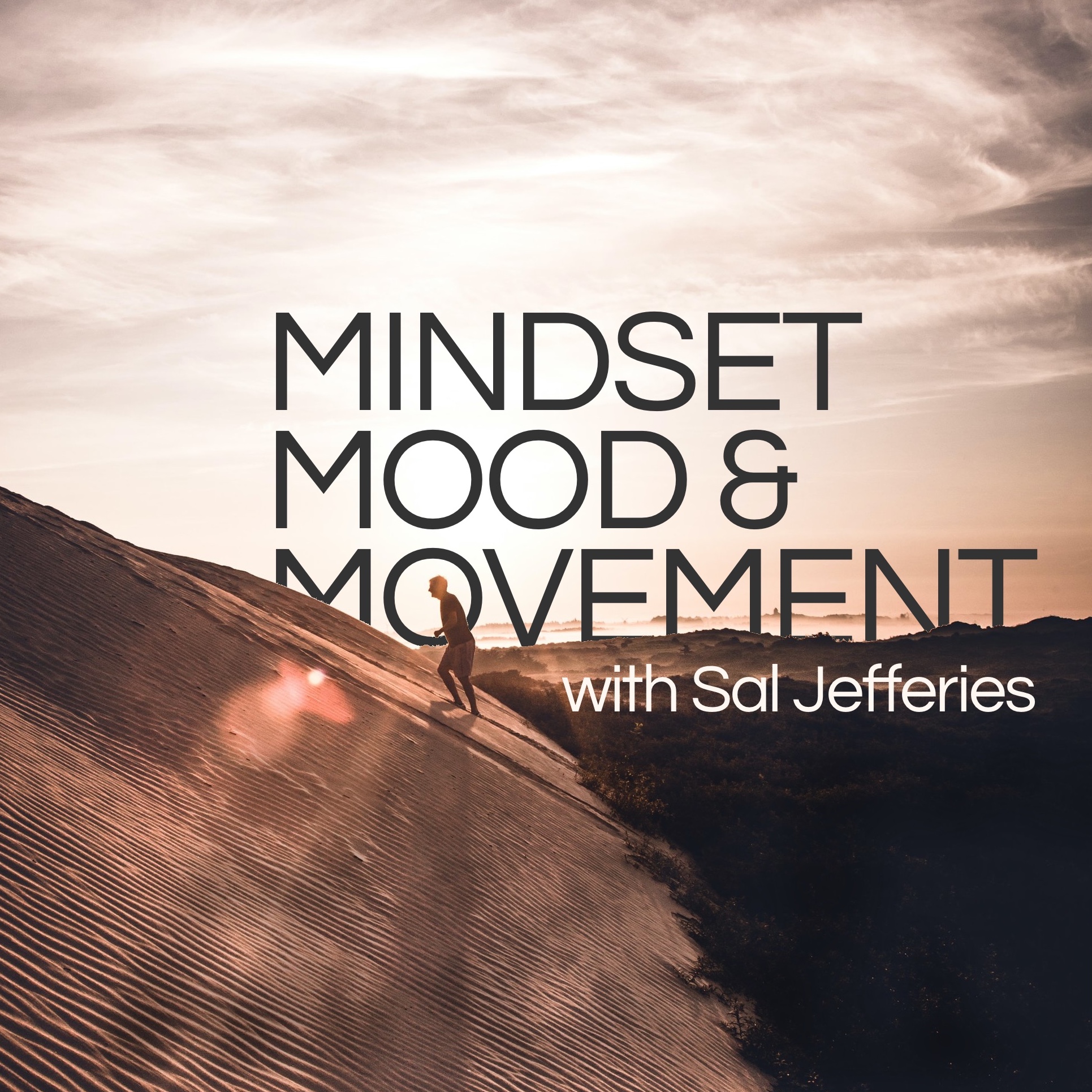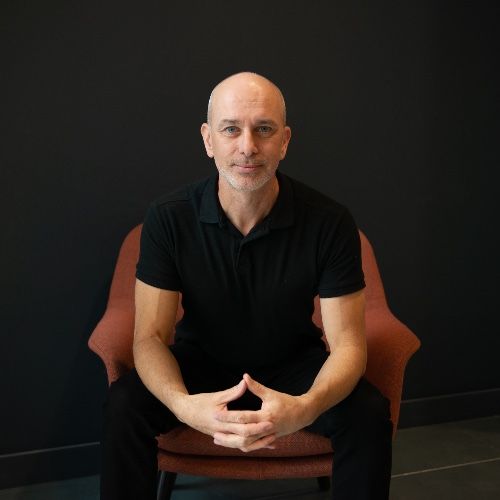Episode 16
Why do you care about the opinion of others?
Worrying about the opinion of others can be a massive problem. It can take a lot of energy and can be draining.
We are social species and it does matter how we are in our trusted group BUT the incessant worrying can be a maladaptive response that can end putting more distance between us and others if not understood and dealt with properly.
Marcus Aurelius, the Roman emperor and philosopher said, "we all love ourselves more than other people, but care more about their opinion than our own"
I talk about how shame can be an underlying feeling that may be connected to this.
Can we move from Pariah to an Outlier? How do we tap into that authentic voice within to guide us?
4 Main Insights.
- How often do you think spending about other people? We spend most of out time thinking about ourselves.
- Instinctual responses are often out of alignment with how we are living today. Expressing yourself to others is liberating.
- Avoid being part of the problem- Avoid judging; self, others. Change your perception of judgement being everywhere.
- What is your body response? If you connect with the sensations that arise, you notice... allow to be without trying to change it. Simply notice and it will shift.
Get in touch with Sal
If this episode has caught your attention and you wish to learn more, then please contact me. I offer a free 20 min call where we can discuss a challenge your facing and how I may be able to help you.
Transcript
Welcome to Mindset, Mood and Movement.
2
:A systemic approach to human
behaviour, performance and wellbeing.
3
:How psychological, emotional and
physical health are all connected.
4
:In this episode I'll be sharing my
knowledge and experience to help you
5
:overcome a challenge that you might
be facing in life, health or work.
6
:hello and welcome.
7
:Are you worried what
other people think of you?
8
:Why do we give so much energy
to the opinion of others?
9
:Now this is an innately human
pattern and it comes up for, for
10
:many of us in many different guises.
11
:And in this episode, I'm going to
talk about it when it's kind of
12
:maladaptive, a problem and stopping you.
13
:It's something I come across numerous
times in my coaching practice
14
:and it's normally one of the.
15
:belief patterns, behavioral patterns that
causes a huge block in people's lives.
16
:But it's important.
17
:Now, if this goes back a long way,
some of you may know Marcus Aurelius,
18
:the, uh, the famous Roman emperor and
philosopher who wrote, uh, meditations.
19
:So this is going back a
couple of thousand years.
20
:And he said, we all love ourselves more
than other people, but care about their
21
:opinions more than our own, whether
they're friends, strangers or enemies.
22
:So this is a innately human
patterns been going on a long time.
23
:Which makes us hopefully think a bit
deeper like, well, it serves something
24
:much more deep, powerful and necessary.
25
:So I'm going to share a story
about a client I've worked with.
26
:Obviously it's, um, I'm going to alias
the client, so for confidentiality.
27
:But I want to explain this because if
you are struggling and if you overly
28
:think and worry what other people
think of you, this could hold you back.
29
:Now I work with, we'll call him Joe.
30
:Joe was a super high level professional,
uh, highly intelligent, had a
31
:family, uh, been working in, uh,
the, the sector of finance for a
32
:long time and was doing really well.
33
:So, so one would say from the
outside, you know, money is
34
:coming in success in the corporate
space, but she was disillusioned.
35
:She was going to work and just finding an
emptiness and joking to my practice to,
36
:to talk through about change, about how
to move from this, you know, unhappy life.
37
:So really that's what it was.
38
:Yes, she had the money.
39
:Yes, she had the what seemed
like external validation and
40
:success, but she wasn't happy.
41
:She wasn't fulfilled.
42
:And that's no way to live.
43
:So we thankfully she came to me
and we were working through this.
44
:So the first thing that I got really
interested in was, you know, ask
45
:the question, what's at stake?
46
:Why does this opinion of others matter?
47
:Why can't you leave this job that
you're kind of, you're feeling
48
:like you can't for some reason.
49
:She wanted to go into creating her
own business with a very creative
50
:edge and why was this not happening?
51
:So we did a lot of work and so
much was coming out and this
52
:is, this is a general theme now.
53
:This is so much about grouping.
54
:Connection, sharing.
55
:We human beings are groupers.
56
:Yeah, we're like selves
that come together.
57
:Everyone, even those of us
who like to be different.
58
:We like to be with our mates
who are also different.
59
:You know, whether you're a
skateboarder, a tech person,
60
:entrepreneur, skier, doesn't matter.
61
:You'll always find someone like you,
even if you're the different group.
62
:We look at cities, you know, people come
together as cities and groups of people.
63
:We are magnetized by the
people and it matters.
64
:And this goes back a long way,
and this is what I brought to
65
:the, to the work we did with Joe.
66
:If we go back to his early roots, humans
are incredibly good at functioning
67
:together with social species.
68
:We're not that powerful as an animal
compared to, say, lions and bears
69
:and, you know, those big powerful
animals, but we're very clever.
70
:We've always had high level
understanding of how to work
71
:as, as, as a team, as a pack.
72
:And, and over those early formations
of our ancestors, we understood
73
:that working together was paramount.
74
:And of course, the opposite goes true.
75
:If we are alone, if we are
out of the group, that is
76
:potentially a fatal situation.
77
:Now, over the years, we've come
to know this experience and this
78
:feeling, this emotional feeling
in us, and it's called shame.
79
:It's when we are cast out.
80
:Or in our culture, we
often call it an outcast.
81
:We're out of the group.
82
:Now this would have made a lot of
sense going back a long way and let's
83
:say the hunter gatherer, , times , and
how that might've been in today's
84
:world with tech, properties, cars, the
culture we live in, it's not quite as.
85
:is damaging to not be part of the group.
86
:And yet those early
formations still apply.
87
:We are still wanting
to be part of a group.
88
:And to be out of our group
is, tantamount to death.
89
:So its roots are deep.
90
:They're deep wired in our neurology,
they're deep wired in our ancestry.
91
:So when we come to the present day
question like, Oh, why do I care
92
:so much what my other half thinks?
93
:Or what my mum and dad think?
94
:Or what someone on LinkedIn
or Instagram thinks?
95
:It's not so much the surface impact.
96
:It's the deep impact.
97
:It's this deeply innate trigger.
98
:I suppose we could say that this
could be very, very dangerous for us.
99
:Now the issue here is.
100
:It's maladaptive.
101
:That's a great response back in
the day, if you're, I don't know,
102
:in the drive having to survive.
103
:In today's world, you can get
your food delivered to the house.
104
:You don't need to worry
about that sort of thing.
105
:Most of us, hopefully, live in a
fairly safe and structured property
106
:and, we don't have to worry about,
animals around us hurting us.
107
:But the response remains and
now it's become very abstract.
108
:So when we think of Joe who was struggling
to find the depth and happiness in life
109
:and move on from her career and create
something powerful and wonderful and be
110
:fulfilled in a, in the entrepreneur world.
111
:The belief block was there.
112
:It was holding her back.
113
:So we did a lot of work around the
explanation as I'm doing now, but the
114
:feeling, what does it feel like when
you are, , pushing on the edge when you
115
:believe that people won't accept you?
116
:Uh, and there's a term
for this, which is pariah.
117
:Tough word, but that's, that's a
term that's often used in English.
118
:You're a pariah.
119
:You are out there.
120
:You're not part of the group.
121
:And what I find fascinating is this
maladaptive process and worrying what
122
:other people think of us can actually
transition from pariah to outlier.
123
:Now an outlier is an interesting one.
124
:It's a more common term.
125
:You may be aware of it.
126
:Outlier links us to pioneer.
127
:leader, forward thinker,
courageous person.
128
:And it's interesting, isn't it?
129
:That we got to have this internal
emotional psychological shift from
130
:the fear and belief of being a
pariah to shift into an outlier.
131
:And I would say an outlier in
the space I work with helping
132
:people make their own decisions.
133
:It's the place to be.
134
:So the question is, how do we tap into
that authentic voice that's within
135
:that authentic voice that's within you
that says, I want to do this, but I'm
136
:worried about other people's think.
137
:And it comes from a very
important state of making peace.
138
:with several things.
139
:Making peace with the fact that
you can't make everyone happy.
140
:And that's a fool's errand.
141
:Sometimes we'll do things, even if
we don't mean to, which might upset
142
:someone, even if we don't mean to.
143
:So we get very caught up in this
attachment to others, and there
144
:lies an opportunity to shift.
145
:So when we start to check in with some
important learnings here, and I'm going
146
:to share four that I see was really
helpful, and I shared this with Joe.
147
:So the insight number one, and I learned
this years ago, I had a coach that said
148
:to me about this and they said how often
do you spend thinking about other people?
149
:And I'm used on the question for a
while and I thought, not that long.
150
:I spend more time thinking about
myself, my own internal experience.
151
:And she was like, yeah, exactly right.
152
:We all spend most of our thinking and
feeling time connected with us, the I.
153
:We're not bothered about
other people that much.
154
:We just don't care.
155
:We care about ourselves.
156
:So here's the freedom in that.
157
:If people don't really care that
much about what we're doing, they're
158
:not that bothered, then we can be
liberated from the fear of that.
159
:So that's the first understanding.
160
:Second, understand that these
are instinctual responses, and an
161
:instinctual response to avoid shame
of being cast out is utterly natural.
162
:but quite likely completely out of
whack with where you're at today, the
163
:circumstance you find yourself in.
164
:So for Joe, it was saying to a
partner, look, I'm so disillusioned.
165
:I've got to do something well in my life.
166
:This is going to damage everything if I
keep pretending to be okay with this job.
167
:And by talking it through and saying,
look, you know, I have to do this.
168
:I know you may not, you're nervous,
you're worried, but I have to do this.
169
:But then suddenly that, that.
170
:Elegance of communication and
authenticity meant that the people that
171
:were doubting and were uncomfortable
still, still kind of said, well,
172
:okay, look, okay, we get it.
173
:I'll support you.
174
:So expressing, understanding and
knowing that instinctual response,
175
:but expressing in the real world
is the second big thing to shift.
176
:Thirdly, and this really worked with, with
Joe, is avoid being part of the problem.
177
:Stop judging yourself.
178
:Stop judging others as much as you can.
179
:Avoid the process of judgment.
180
:And the reason for this,
it's a perceptual thing.
181
:It's a psychological perceptual shift.
182
:What we pay attention to is what we see.
183
:So if we are conscious or unconscious
and judging how we are and judging
184
:what's going on, judgment is what we see.
185
:The more we can attend to the internal
perception about, let's just let the
186
:judgments go, just let them pass, let them
fade, is that they fade in our perceptual
187
:filters of what's going on around us.
188
:And that is so powerful.
189
:It's not easy.
190
:It takes daily practice because
the culture of immersing is
191
:one of opinions and judgments.
192
:For anyone who's self aware,
it's Utterly possible.
193
:And it's again, one of
the freedom pieces here.
194
:And finally to go into a really first
position, experience your body's response.
195
:So if you're having a fear or
worry what someone's thinking
196
:of you, what does your body do?
197
:What are the sensations?
198
:First and foremost, fear is natural.
199
:And if it's habitual for you, it's going
to come up every time you dare speak
200
:up or do something different, be the
leader you want to be, whatever that is.
201
:Notice the fear, sensation, notice
where it is in your body, and
202
:do nothing apart from observe.
203
:For me, it's very much centered in
my abdomen, in my, in sort of core
204
:center, that's where I feel it.
205
:For others I've worked with, I
remember Jo, it was very, in her
206
:shoulders, and there was a lot
of activity and tension there.
207
:And simply by allowing it to be, aware
of the breath, these Sensory signals
208
:that affect the goings back to the
brain start to change the internal
209
:environment of your body, brain, and
then that changes your, your experience.
210
:And then we realized that while
fear is maybe natural, habitual,
211
:it doesn't need to be absolute.
212
:And you can be careful
with what you're doing.
213
:We're not talking about being
reckless, but you can move
214
:forwards and make choices.
215
:And I would say that is
great self leadership.
216
:So if you want to be in a place of
leadership in your work, in your
217
:business, that is a very powerful way.
218
:So I trust all of that has been useful.
219
:The opinion of others, it's always
going to be there as a thought.
220
:It has its natural and a
valid reason to be there.
221
:But in today's world, move from
pariah to outlier in your mind.
222
:Set yourself free from
this pattern because...
223
:Generally, if you weren't afraid to do
stuff, there'd be so many things available
224
:and fear is natural, but fear does not
want to be absolute and restrictive.
225
:So I trust that is a, a little whirlwind
journey that might give you some insights,
226
:give you some tools to help you become.
227
:A little freer when that pattern of
worrying what other people think of you
228
:sneaks up in your mind, you can check
it and go, Ah, I know what this is.
229
:I know why this is, and I know
some strategies to deal with it.
230
:Thank you so much for listening.
231
:If you enjoyed the
episode, please subscribe.
232
:And if a friend would benefit from hearing
this, do send it on to them as well.
233
:If you would like to get in touch
yourself, then you can go to my website.
234
:Which is Sal Jeffries dot com,
spelt S A L J E F F E R I E S.
235
:Sal Jeffries dot com.
236
:Hit the get in touch link and there
you can send me a direct message.
237
:If you'd like to go one step further
and learn whether coaching can help
238
:you overcome a challenge or a block
in your life, then do reach out and
239
:I offer a call where we can discuss
how this may be able to help you.
240
:Until the next time, take care.


